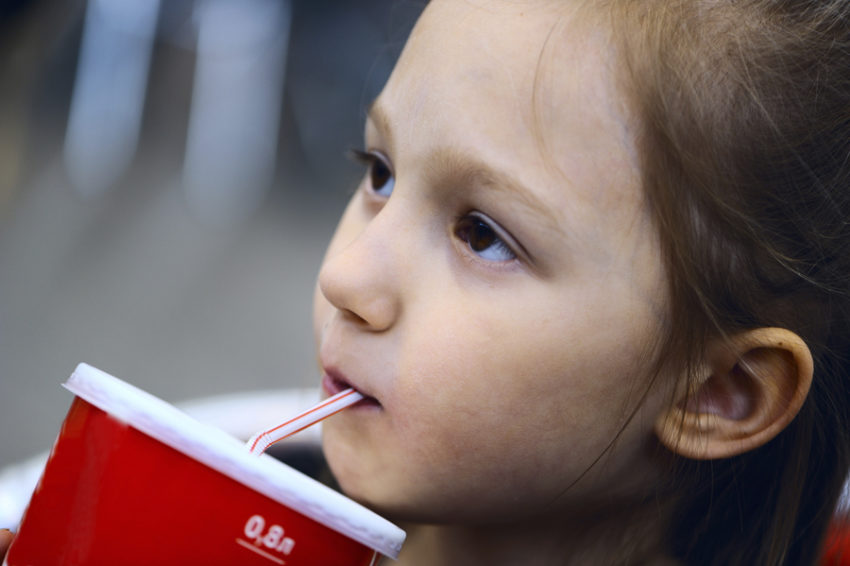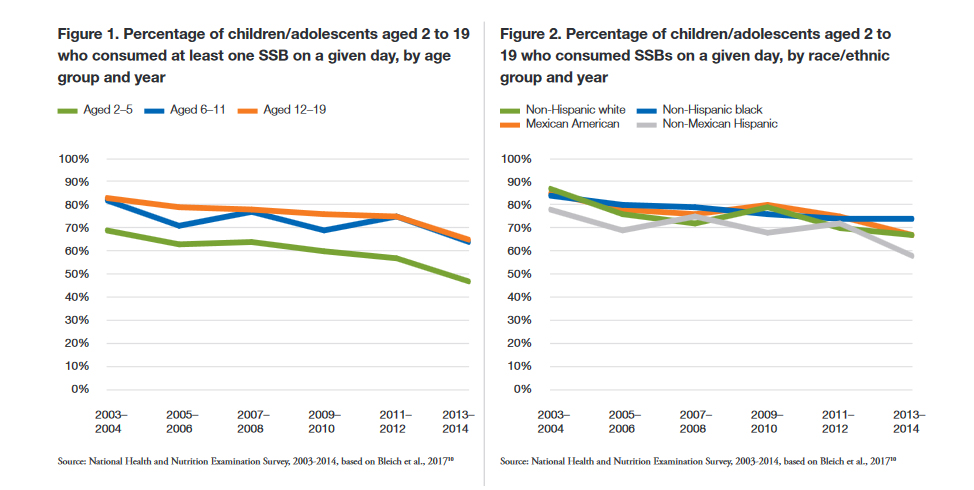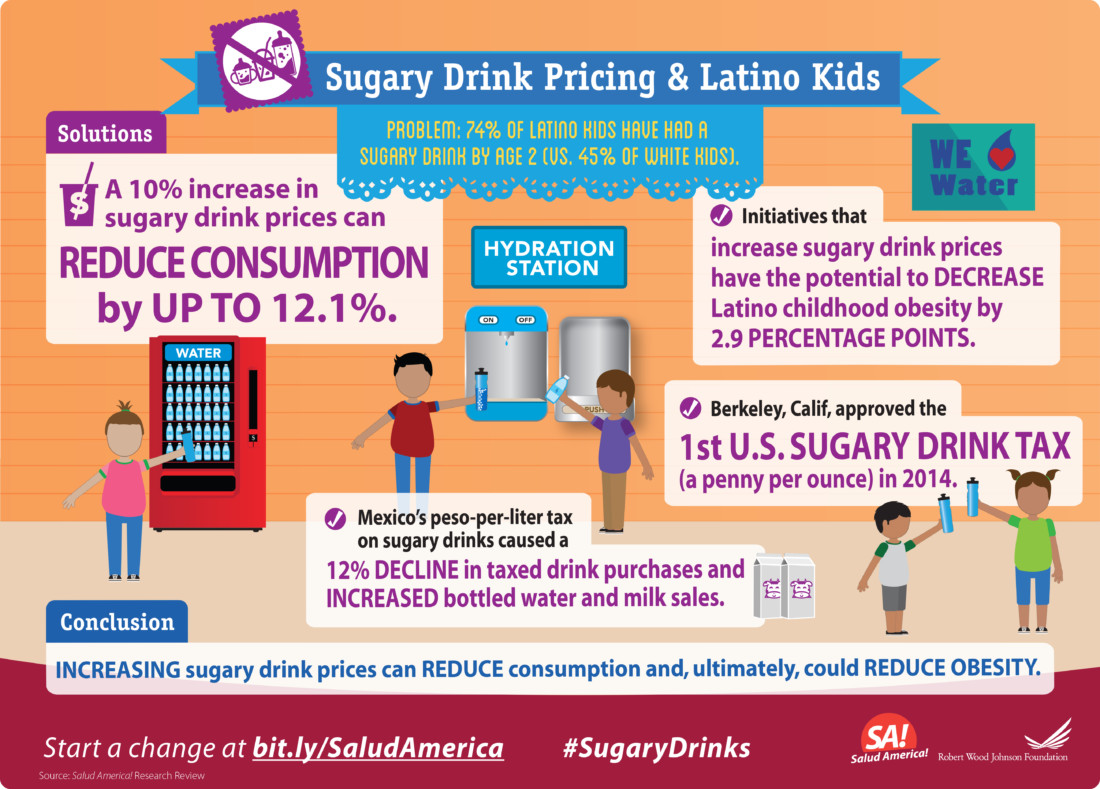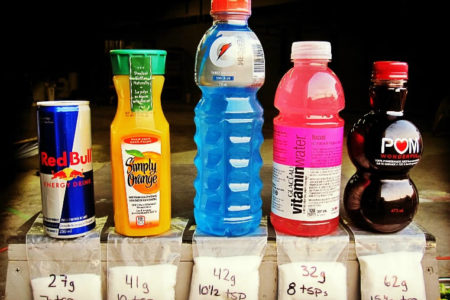
Share On Social!
U.S. children’s sugary drink consumption has declined over the past 15 years, but rates remain higher than federal dietary guidelines and among Latinos and other minorities, according to a new report by Healthy Eating Research.
The new report cites “clear evidence” that sugary drink consumption increases a child’s risk for overweight, obesity, and dental cavities.
It also has insulin resistance and caffeine-related affects.
These health consequences are especially worrisome for Latino kids, who consume more sugary drinks—soda, sports and energy drinks, sugary fruit juices, and flavored milk—than the average child at all ages, according to a Salud America! research review.
“Reducing [sugary drink] consumption would help improve children’s health by decreasing the risk for obesity and other negative health consequences,” according to the Healthy Eating Research report.
The New Data
The percentage of children consuming at least one sugary drink a day declined significantly from 80% in 2003 to 61% in 2017, according to the Healthy Eating Research report.
 This decline occurred among all groups of children.
This decline occurred among all groups of children.
White children’s consumption dropped from 78% to 58%, black children’s from 84% to 74%, Mexican Latinos from 85% to 67%, and non-Mexican Latinos from 86% to 67%.
Latino and black kids, despite the declines, still had much higher rates than whites.
This is critical because of the health consequences of drinking too many sugary drinks, which include more Latino childhood obesity, diabetes, and more.
A recent University of California, San Francisco study even linked sugary drinks to reduced DNA protection among Latino preschoolers.
The study found that most children (62%) were drinking sodas by age 2 to 3, which researchers linked to shorter telomeres— the protective end caps for DNA within cells’ chromosomes. Telomeres shorten with age, which has been associated in some adult studies with metabolic and inflammatory diseases, including heart disease, type 2 diabetes, liver cirrhosis and ulcerative colitis.
“Even at relatively low levels of sugared-beverage consumption, we found that how often these young children drank sugar-sweetened beverages was associated with telomere length,” said study lead author Dr. Janet Wojcicki of the UCSF Department of Pediatrics, in a news release.
What Can We Do?
Reducing sugary drinks can improve Latino children’s health.

Our Salud America! research review found several emerging solutions:
- Raise the price of sugary drinks. Sugary drink pricing initiatives are in place in Berkeley, Calif., will go into effect in January in Philadelphia, and were approved in five other localities in California, Colorado, and Illinois in November 2017.
- Reduce access to sugary drinks in childcare centers. water access in childcare centers. Few early childcare centers report serving sugary drinks to kids ages 0-5, but increased regulation can reduce serving of sugary drinks and increase promotion of water.
- Increase access to clean water. Mexican-American and lower-income kids consume less plain water than white kids. But when New York elementary and middle schools replaced vending machines with water jets, students’ likelihood of being overweight dropped more than 0.6 percentage points.
 Salud America! also created an Action Pack to help school leaders push for Water Bottle Fountains in schools to boost access to water for Latino and all kids.
Salud America! also created an Action Pack to help school leaders push for Water Bottle Fountains in schools to boost access to water for Latino and all kids.
Other groups are getting involved.
A group in California started a bilingual Sugar Bites campaign. One campaign is using the power of Latino poets to prevent sugary drink consumption. Another campaign in Colorado is using bilingual “water promotoras” to push water!
What can you do?!
By The Numbers
74
percent
of Latino kids have had a sugary drink by age 2 (vs. 45% of white kids)



